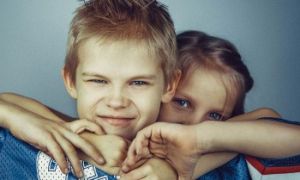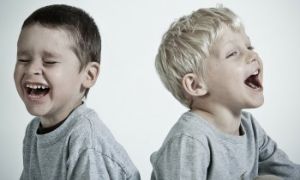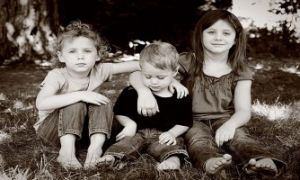

On the 14th of March, it is Holi. Holi is one of the biggest Hindu festivals that celebrates the victory of good over evil. The following provides free Printables, Activities and Template that will enable you to celebrate Holi at your service and activities that can be implemented into the curriculum for children.
On the 3rd of March, wildlife is celebrated worldwide for the UN World Wildlife Day. The following provides free Printables that will enable you to celebrate World Wildlife Day at your service and activities that can be implemented into the curriculum for children.
On 2nd March, it is Dr Seuss Day. It is a day that celebrates the birthday of Theodor Seuss Geisel – otherwise known by the pen name by which he authored children’s books: Dr Seuss. The following provides free Printables that will you celebrate Dr Seuss Day at your service and activities that can be implemented into the curriculum for children.
Auslan is the sign language of the Australian Deaf community. The following article provides a list of rhymes in Auslan. Each rhyme includes lyrics, a picture song board, key signs and a video of how to use Auslan signs to sing each rhyme.
On the 20th of February every year, it is National Love Your Pet Day. This special day honours the bond between humans and their beloved pets. The following provides Pet, Printables, Activities and Template that will help you celebrate pets at your service that can be implemented into the curriculum for children.
On the 14th of February, it is Valentine's Day. It's a day when lovers, relatives and friends express their love for one another with greetings and gifts. The following provides Valentine's Day Templates, Songs, Printables and Activities that will help you celebrate love at your service that can be implemented into the curriculum for children.
The 11th of February is International Day of Women and Girls in Science. It enables us to honour women’s significant achievements in science and place a much-needed focus on girls entering Science, Technology, Engineering, and Mathematics (STEM) careers.
World Pizza Day is celebrated on the 9th of February. It is essentially a celebration of pizza and its journey. The following article provides activity ideas for children to implement on World Pizza Day.
On 26 January we celebrate Australia Day. The following provides a list of activities and free printables that can be implemented into the curriculum for children.
Lunar New Year is celebrated on the 29th of January 2025. The Lunar New Year in 2025 welcomes the Year of the Snake, according to the Chinese lunar calendar. The following article provides information ABout Lunar New Year, Year Of The Snake, Activity Ideas and Free Printables for children and more.
 Toddlers have a greater understanding of the world around them by this stage. Their cognitive development (also known as intellectual development and thinking skills) continues… Read More
Toddlers have a greater understanding of the world around them by this stage. Their cognitive development (also known as intellectual development and thinking skills) continues… Read More
 Infants begin to develop trust when parents begin to fulfil their needs. Such as changing an infant's nappy when needed, feeding on request and holding… Read More
Infants begin to develop trust when parents begin to fulfil their needs. Such as changing an infant's nappy when needed, feeding on request and holding… Read More
 Beginning at birth the construction of thought processes, such as memory, problem solving, exploration of objects etc, is an important part of an infant’s cognitive… Read More
Beginning at birth the construction of thought processes, such as memory, problem solving, exploration of objects etc, is an important part of an infant’s cognitive… Read More
 Toddlers want to do more on their own and do not like it when you begin to establish limits on their behaviour. Tantrums can become… Read More
Toddlers want to do more on their own and do not like it when you begin to establish limits on their behaviour. Tantrums can become… Read More
 Your preschooler is now able to focus their attention more accurately and is less influenced by distractions. The intensity of questions increase as your child… Read More
Your preschooler is now able to focus their attention more accurately and is less influenced by distractions. The intensity of questions increase as your child… Read More
 John Dewey is often seen as the proponent of learning by doing – rather than learning by passively receiving. He believed that each child was active,… Read More
John Dewey is often seen as the proponent of learning by doing – rather than learning by passively receiving. He believed that each child was active,… Read More
 Toddler advance and gains new skills in Gross Motor Development milestones achieved throughout earlier years. Co-ordination and challenges that could not be performed before such… Read More
Toddler advance and gains new skills in Gross Motor Development milestones achieved throughout earlier years. Co-ordination and challenges that could not be performed before such… Read More
 Erik Erikson developed a psychosocial theory to understand how we each develop our identities through eight stages of psychosocial development from infancy to adulthood. The… Read More
Erik Erikson developed a psychosocial theory to understand how we each develop our identities through eight stages of psychosocial development from infancy to adulthood. The… Read More
 At this point preschoolers begin to interact effectively with others. Play becomes more innovative and organized and “boyfriend” or “girlfriend” begins to emerge. Preschoolers have… Read More
At this point preschoolers begin to interact effectively with others. Play becomes more innovative and organized and “boyfriend” or “girlfriend” begins to emerge. Preschoolers have… Read More
 From now, babies begin to identify and respond to their own feelings, understanding other's feelings & needs and interact positively with others. A baby's social and… Read More
From now, babies begin to identify and respond to their own feelings, understanding other's feelings & needs and interact positively with others. A baby's social and… Read More

Children’s early experiences consist of interactions with parents, other family members, Educators and teachers as...
See more...
As Educators, there will be many instances where you will need to write about a...
See more...
Developmental milestones are a set of functional skills or age-specific tasks that most children can...
See more...© 2009-2025 Aussie Childcare Network Pty Ltd. All Rights Reserved.

